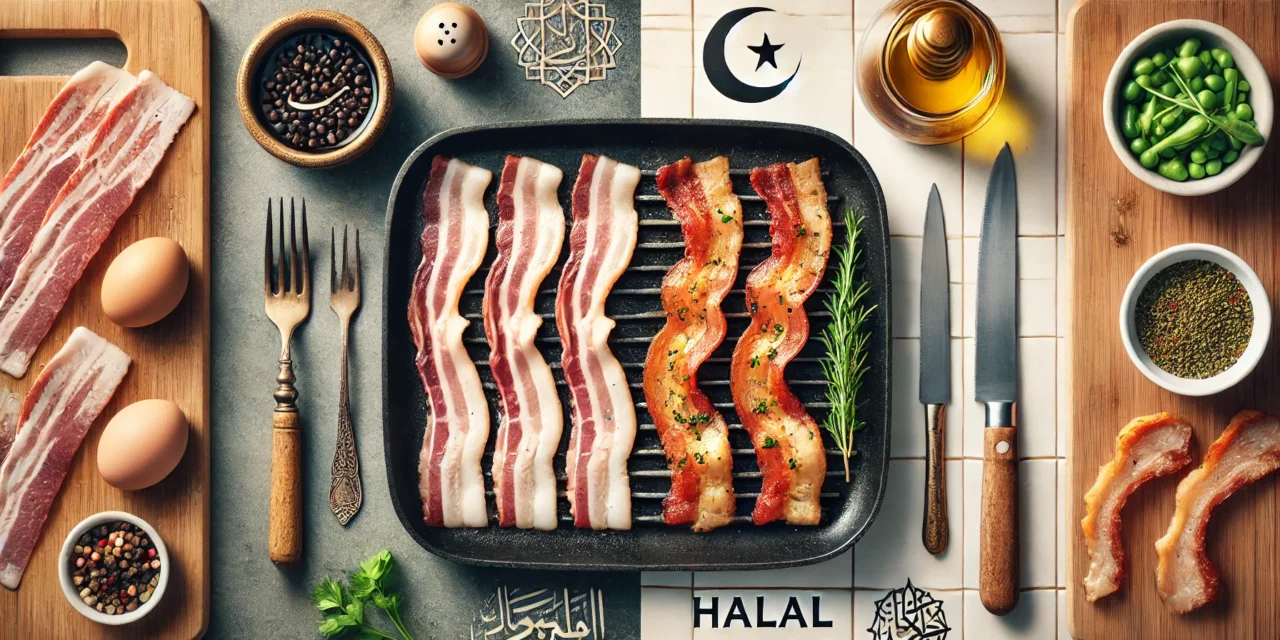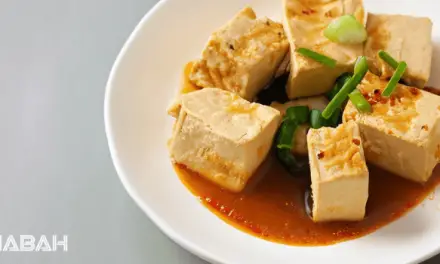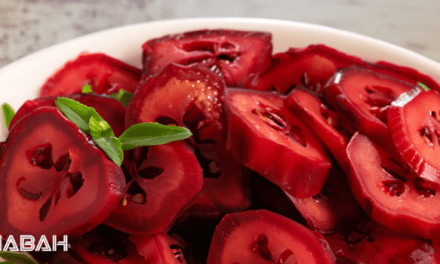Is Bacon Halal? A Comprehensive Guide to Pork and Halal Alternatives
In the world of culinary delights, few aromas are as enticing as that of sizzling bacon. However, for Muslims adhering to halal dietary laws, the question “Is bacon halal?” is crucial. This comprehensive guide will explore the Islamic perspective on bacon and pork products, explain why traditional bacon is not considered halal, and introduce you to a world of delicious halal alternatives.
What Does Halal Mean?
Before diving into the specifics of bacon, it’s essential to understand what “halal” means in the context of Islamic dietary laws.
Halal is an Arabic word meaning “permissible” or “lawful.” In the food sector, it refers to any food that is allowed under Islamic law. The opposite of halal is “haram,” which means forbidden or unlawful.
“O mankind! Eat of that which is lawful and good on the earth, and follow not the footsteps of Shaytan (Satan). Verily, he is to you an open enemy.” – Quran 2:168
For food to be considered halal:
- It must not contain any haram ingredients
- It must be prepared using utensils, equipment, and machinery that have been cleansed according to Islamic law
- It must not come into contact with or be stored near any haram foods during preparation, manufacture, or storage
The Islamic Stance on Pork and Bacon
Is Bacon Halal According to Islamic Law?
The short answer is no, bacon is not halal. Traditional bacon, made from pork, is explicitly forbidden in Islam. This prohibition is clearly stated in the Quran:
“He has only forbidden to you dead animals, blood, the flesh of swine, and that which has been dedicated to other than Allah.” – Quran 2:173
Why is Pork Forbidden in Islam?
The prohibition of pork in Islam is based on religious commandments. While some scholars have pointed to potential health risks associated with pork consumption, the primary reason for abstaining from pork is obedience to Allah’s commands.
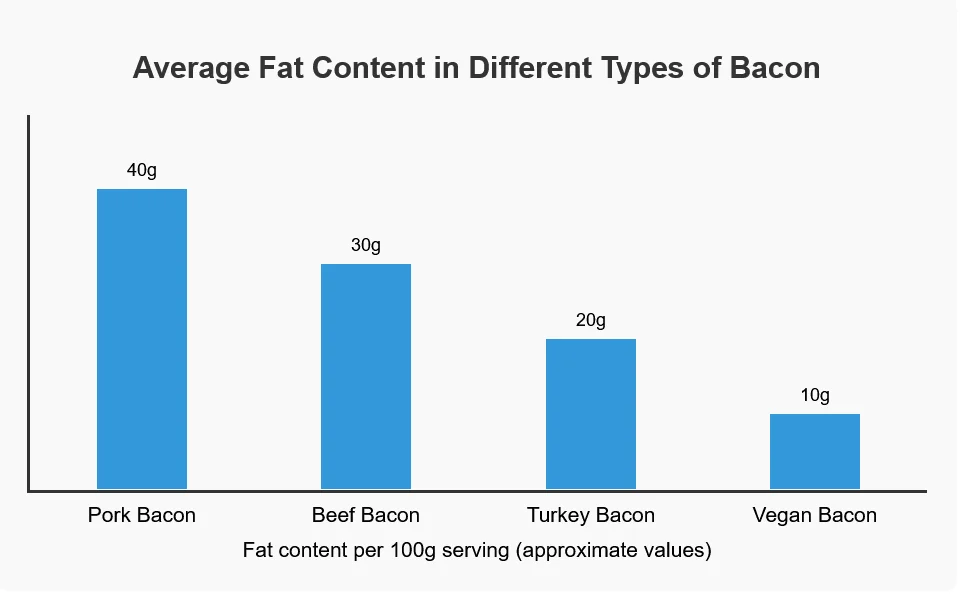
Understanding Bacon and Its Ingredients
What is Bacon Made From?
Traditional bacon is made from pork, typically from the belly or back cuts of a pig. The meat is cured and often smoked, resulting in its distinctive flavor profile.
The curing process typically involves the use of salt, sugar, and sodium nitrite. After curing, the bacon is often smoked to enhance its flavor further.
Can Bacon Ever Be Halal?
While pork bacon can never be halal, there are numerous halal alternatives available that mimic the taste and texture of traditional bacon.
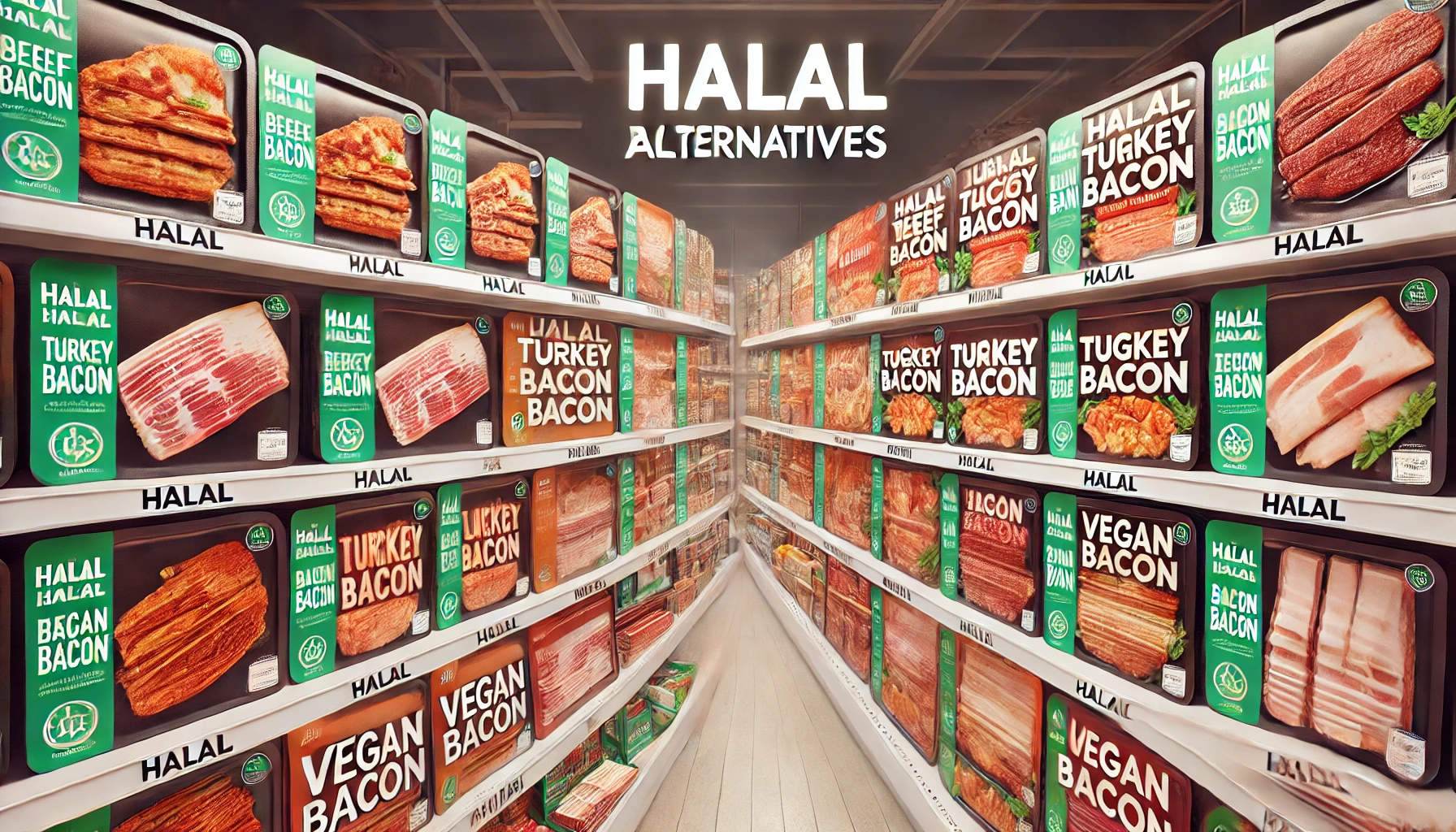
Halal Alternatives to Bacon
For Muslims seeking the bacon experience without compromising their dietary laws, several options are available:
- Beef bacon: Made from cow meat, usually brisket or navel cut
- Turkey bacon: Created from turkey meat, often the breast
- Lamb bacon: Prepared from lamb belly
- Vegan bacon: Plant-based alternatives made from ingredients like tempeh, seitan, or coconut
Halal Beef Bacon: A Popular Alternative
Halal beef bacon has gained popularity among halal consumers. It’s made from beef that has been slaughtered according to Islamic principles (zabiha) and then cured and smoked to resemble traditional pork bacon.
Case Study: Zabiha Halal Beef Bacon
One leading halal certification body, HFSAA (Halal Food Standards Alliance of America), has certified a brand of zabiha halal beef bacon. This product offers Muslims a way to enjoy the taste of bacon while adhering to their dietary restrictions.
| Aspect | Pork Bacon | Halal Beef Bacon |
|---|---|---|
| Source | Pig | Cow |
| Halal Status | Haram | Halal (if properly certified) |
| Fat Content | Higher | Lower |
| Taste | Smoky, salty | Similar, slightly different |
| Texture | Crispy when cooked | Can be made crispy |
| Availability | Widely available | Available in halal stores and some mainstream supermarkets |
How to Ensure Your Bacon Alternative is Halal
When seeking halal bacon alternatives, consider the following steps:
- Check for halal certification: Look for products certified by reputable halal certification bodies.
- Read the ingredients: Ensure there are no haram ingredients or alcohol-based flavorings.
- Verify the source: Confirm that the meat comes from halal-certified suppliers.
- Ask about preparation: In restaurants, inquire about how the bacon alternative is prepared to avoid cross-contamination with non-halal meats.
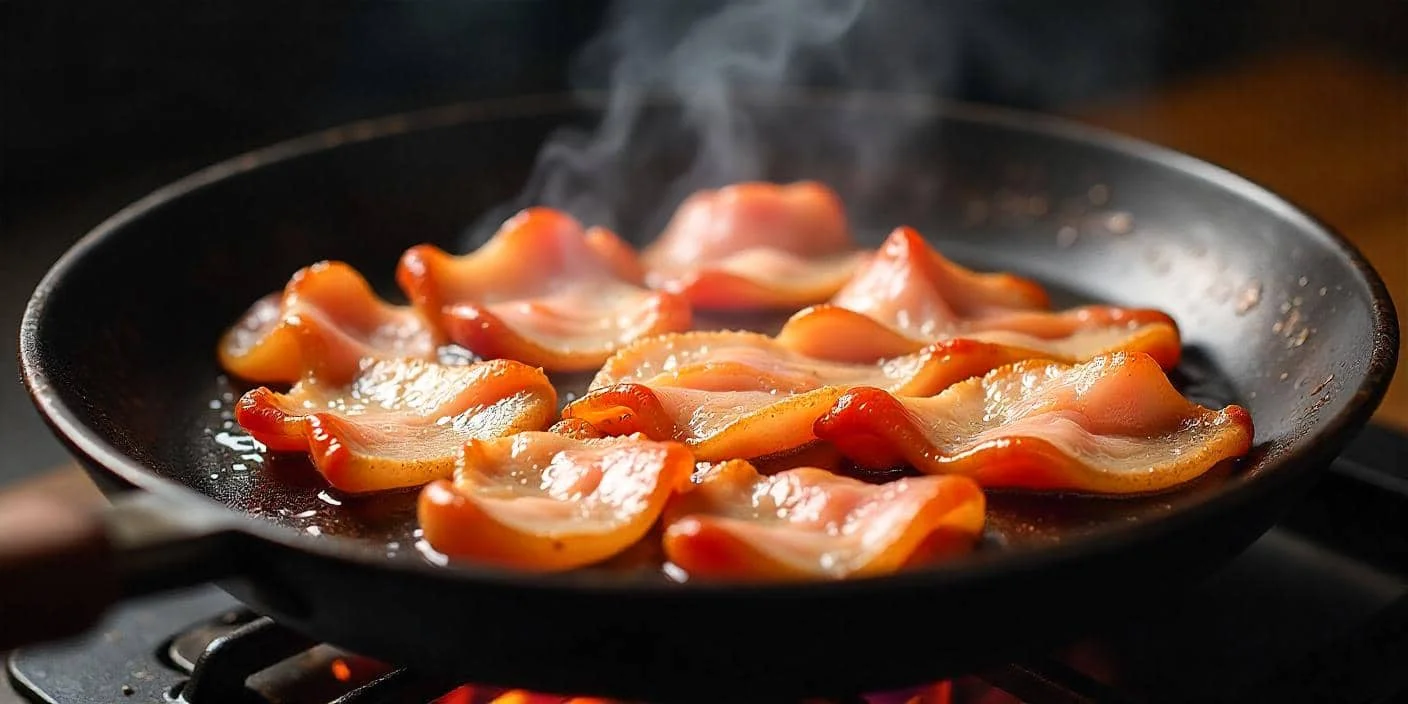
Making Your Own Halal Bacon
For those who enjoy cooking, making halal bacon at home can be a rewarding experience. Here’s a simple recipe for beef bacon:
Ingredients:
- 2 lbs halal beef brisket
- 1/4 cup salt
- 2 tablespoons black pepper
- 2 tablespoons brown sugar
- 1 teaspoon curing salt (Prague Powder #1)
- 1 teaspoon garlic powder
- 1 teaspoon onion powder
Instructions:
- Mix all dry ingredients to create a cure.
- Coat the beef brisket thoroughly with the cure mixture.
- Place in a sealed plastic bag and refrigerate for 5-7 days, flipping daily.
- After curing, rinse the meat and pat dry.
- Smoke at 200°F (93°C) until internal temperature reaches 150°F (66°C).
- Cool, slice thinly, and enjoy your homemade halal beef bacon!
The Impact of Consuming Non-Halal Foods in Islam
While the focus of this article is on halal alternatives to bacon, it’s important to understand the significance of adhering to halal dietary laws in Islam.
Consuming haram foods is considered a sin in Islam. However, Islam also emphasizes Allah’s mercy and forgiveness. If a Muslim unknowingly consumes haram food, they are not held accountable. But if they do so knowingly, they should seek forgiveness and recommit to following halal guidelines.
Frequently Asked Questions: Is Bacon Halal
Traditional bacon, made from pig meat, is not halal due to the prohibition of eating pork in Islamic dietary laws. However, there are halal alternatives made from other types of meat, such as turkey or beef, that can be enjoyed as halal bacon.
What types of meat can be used to make halal bacon?
Halal bacon can be made from various types of meat, including turkey, beef, or chicken. These meats must be sourced from halal products and slaughtered according to halal principles to ensure they meet halal standards.
Can I eat breakfast bacon if it’s halal?
Yes, you can eat breakfast bacon if it is made from halal meat, such as turkey or beef. It is essential to check that the product adheres to halal standards and is certified halal.
What are the halal standards for meat?
Halal standards for meat require that the animal must be slaughtered in the name of Allah, must be from halal species, and must not be carrion or improperly handled. This ensures that the meat qualifies as halal meat.
How is halal bacon different from traditional bacon?
Halal bacon differs from traditional bacon in that it is made from permissible types of meat, avoiding pig meat entirely. Additionally, halal bacon is prepared according to halal principles, ensuring that it is suitable for those who eat halal.
Can I find halal bacon in stores?
Yes, many grocery stores and halal butcher shops offer halal bacon options. Look for products labeled as halal or those from reputable brands known for producing halal food products.
What is the best way to cook halal bacon?
Halal bacon can be cooked in a similar manner to traditional bacon—by frying, baking, or grilling. Cooking methods may vary depending on the type of meat used, but the goal is to achieve a crispy texture and rich flavor without compromising halal standards.
Is halal bacon a healthier option than traditional bacon?
Halal bacon made from lean meats, like turkey breast, often has less fat and fewer calories compared to traditional bacon made from pig meat. However, it’s important to check the nutritional content of specific products to assess health benefits.
Are there any specific brands known for halal bacon?
Yes, several brands specialize in halal food products, including halal bacon. It is advisable to look for brands that are certified halal and have a good reputation in the market for offering high-quality halal meat alternatives.
Conclusion
While traditional pork bacon is not halal, Muslims have many delicious alternatives to choose from. Whether it’s beef bacon, turkey bacon, or plant-based options, these alternatives allow Muslims to enjoy similar flavors while adhering to their religious dietary laws.
Remember, the key to enjoying halal bacon alternatives is to ensure they are prepared according to Islamic principles and certified by reputable halal certification bodies. By staying informed and making conscious choices, Muslims can savor a wide range of flavors while maintaining their commitment to halal dietary guidelines.
May Allah guide us all to make the best choices in our diet and in all aspects of our lives. Alhamdulillah for the abundance of halal options available to us today!

